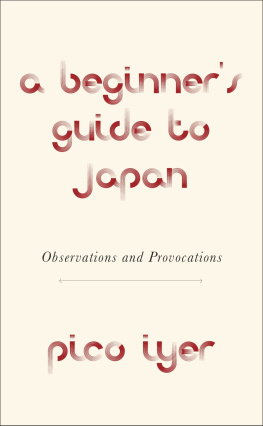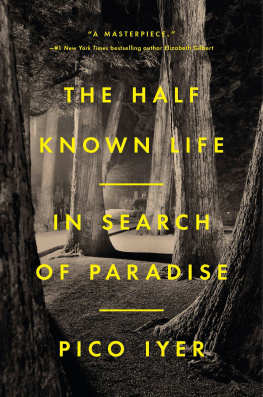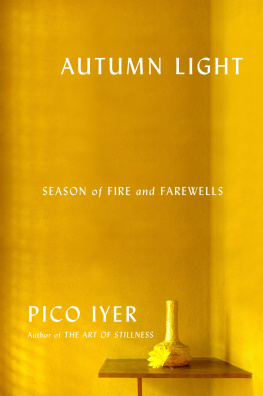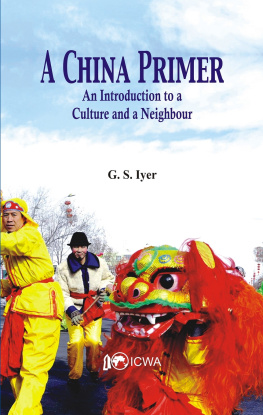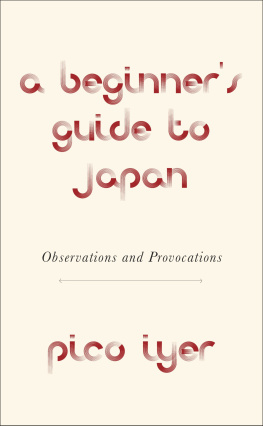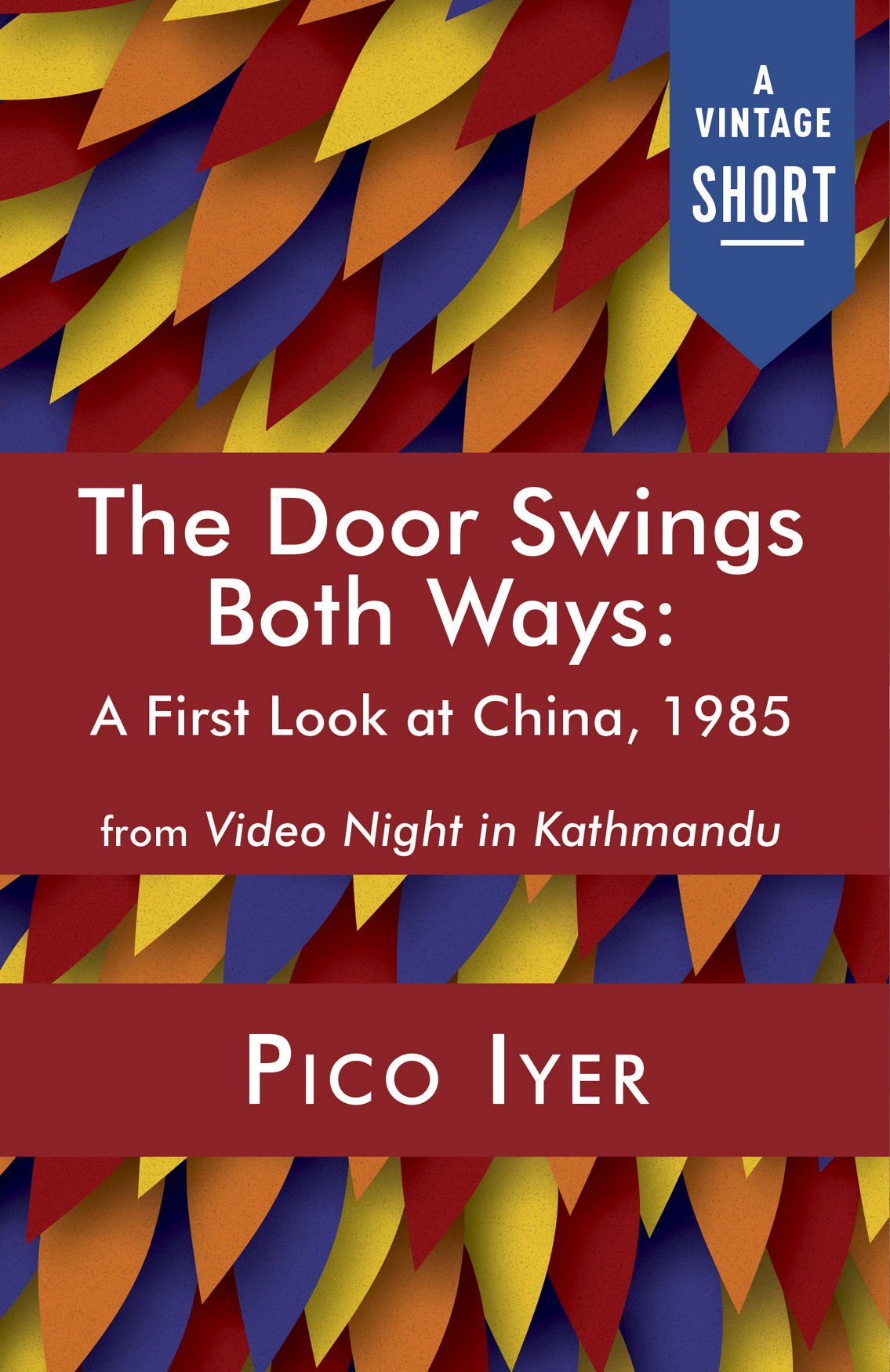Pico Iyer has written nonfiction books on globalism, Japan, the Fourteenth Dalai Lama, forgotten places, and novels on Revolutionary Cuba and Islamic mysticism. He regularly writes on literature for The New York Review of Books, on travel for the Financial Times, and on global culture and the news for Time, The New York Times, and magazines around the world.
Pico Iyer is represented by Penguin Random House Speakers Bureau (www.prhspeakers.com).
All rights reserved. Published in the United States by Vintage Books, a division of Penguin Random House LLC, New York, and in Canada by Random House of Canada, a division of Penguin Random House of Canada Ltd., Toronto. Originally published in hardcover in the United States as a part of Video Night in Kathmandu by Alfred A. Knopf, a division of Penguin Random House LLC, New York, in 1988.
Vintage and colophon are registered trademarks of Penguin Random House LLC.
The beautiful young girl lies on a grassy knoll daydreaming about her future price charming.
Opening line of a review of the movie The Bordertown in the Beijing Review, July 29, 1985
T he new Chinathe China that has opened its door to the outside world and is beckoning it inside with a smiledeals with its suitors in Hong Kong. The New China is well aware that her longtime seclusion has only inflamed the romantic illusions of the West, adding the lure of the long-forbidden to the appeal of the mysterious. The New China also knows that many a dreamy admirer will spare no expense at all to catch a long-denied glimpse of her mist-wreathed pagodas and jade mountains; a courtesans expensiveness is, after all, part of her seduction.
So it is that the China Travel Service in Hong Kong, the New Chinas official overseas agent, offers its visitor as many positions and permutations as a panderer, catering to every fantasy with a variety of tours that range from the most basic, in-and-out package ($1,000) to a host of more exotic options ($2,500 or more). The China Travel Service will procure for a tourist hotels, guides, flights and trains. For $17, it will get him a visa; for $25, a visa overnight. The Chinese are masters of supply and demand, a British financier who did business in Beijing advised me. They know exactly how to hit the right level.
The New China also prefers to keep its rendezvous with the West strictly organized and closely chaperoned, a series of blind dates on which the two parties may inspect one another from a safe distance, swap reassuring smiles and then go their separate ways, separately enriched. Nearly all the countrys modern facilities are therefore confined to the well-roped trail of the Imitation Silk Route, along which groups of tourists are led as through some special museum exhibition. Traveling in China alone, especially without any Chinese language, was still in 1985 an act of folly. I, however, was willing to put up with any amount of inconvenience in order to be spared the red-carpet rituals of the guided tourthe picture-perfect vistas, the routine exchange of pleasantries with well-trained hosts and, above all, the infamous climax of every New China visit, the group of adorable schoolchildren welcoming Westerners with an impromptu chorus of Jingle Bells. (Even a nine-hour day trip across the border included a visit to a kindergarten where children will greet you warmly with laughter, hand-clapping, singing and dancing.) I therefore asked for nothing more from the China Travel Service than a $30 train ticket to Guangzhou, spurning even the extra $20 service that would ensure someone to greet me on arrival and see me safely onto the next train to Beijing.
Next morning, nursing a mild fever, I boarded an express train in Hong Kong. Three air-conditioned, soft-seated hours later, I got out in China. In front of me in the bright afternoon was a vast square, ringed by giant billboards and graying skyscrapers. Beside me, extending for block after block after gray, gray block, was the main body of the station. Along its walls were ragged clumps of people, sleeping, spitting, fighting, jostling, crouched on cases, encamped on the ground. All around was vastness and great vacancy.
Across the length of the whole great square, I could decipher not a single sign but one: China Travel Service, inscribed on a drab gray building behind a barbed-wire fence. That, however, was all I needed. Hoisting my case over the barrier, I ducked under it myself, tramped across a courtyard and walked into the gray stone building. I found myself within a maze of shadowed hallways, musty stairwells, empty rooms. I passed through a frosted-glass door and was directed out again into another series of dark corridors. I stopped a passerby and was sent down another hallway. I found another official, and was pointed down a series of high school passageways, to a large room in which sat three small men. I asked them for a ticket to Beijing, and they pointed me out toward the station.
Back in the sun, I started walking across the square, past crowds and empty spaces, past bus stands and dollar-mongers, past more people and more empty space, along the side of the never-ending station, for ten minutes or more. Finally, halfway down the immense block, I came upon the departure hall. Inside, it was echoing and empty as the belly of a whale. Vast waiting rooms the size of auditoriums were utterly unpeopled. Grand staircases swept heavenward to more balconies. Long, long corridors led through unlit hallways that led into long, long corridors. The main hall, in which a few ragtag bands of nomads were camped, forked this way and that, into a garden courtyard, a nursery, a checkroom, a puzzle of bleak entrances.
Anxious to find anyone or anything that I could understand I began walkingaround the hall, and through it, up the stairs and down a corridor, into an empty room, and out of it again. I walked along the length of corridors and around a balcony and through the garden, back around the hall, into waiting rooms and out of them, back up the sweeping staircase and down again. Everywhere it was the same: no English, no help, no good. I went back to a duty-free shop crammed with high-tech goods, and around again, and back to the waiting hall, and out. Nowhere any English, nowhere any help. I walked up, and down, and up once more. No English. No use. No good. Canton Station was a maze designed by Escher with considerable assistance from Borgesnot dizzying like Tokyo Station, which buzzes with microchip lights and bustling armies, beehive catacombs and secret passageways, but impenetrable in the manner of an enormous tomb cluttered with overstuffed filing cabinets.


